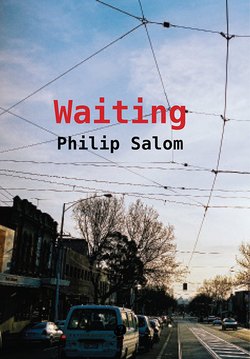Читать книгу Waiting - Philip Salom - Страница 10
На сайте Литреса книга снята с продажи.
ОглавлениеThe Ugly Sisters
On the other side of the country, or half-way to be exact, a new morning means an old grudge for Little’s family. The older and slower Little’s mother has been getting, the more her aunts have waited for her to slow to a… standstill. Without its implications of sitting for longer near a window, of recollection, and tranquillity (even some kind of grace?), then death.
The aunts like things faster: they wish for the demise of two-at-once, the mother and the irrelevant daughter, that weak girl lost somewhere in the inner suburbs of Melbourne, alone and gone. They, after all, are the lost girl’s aunts.
It is quite simple, they out-rank Little. They growl because they know when it concerns the money issue there is another issue, the only issue; the next of kin. Little is the only issue. Literally. Single child. Inside the grudge rooms the worm is turning, and Little is the grit in the worm’s intestinal tract, there being no teeth. Dentures perhaps. This acute indigestion has been increasing quite without Little’s knowledge, and if she were to meet her aunts she would make an obvious fool of herself by deferring to them, playing not courteous (she lacks standing enough for that) but over-respectful, subservient.
Precisely what they want, and resent. They want to fight.
Mrs Little has thought of Little training all those years ago for the unlikely task of teaching primary children, the first weeks following painfully into months, and the finality of her crash. Fear is something Little still feels, and it was put to the test back then. Teaching small children is pretty easy but they rise to twelve years old and they were too much for Little. Medication can do wonders and Little was at first able to rise from it. Then Anxiety won. Never again such grand ideas, and sad that she’d had them in the first place, sadder then to see her inner teacher lost forever.
Later, Big would emerge beside her, his faux-University old-style lecturer a kind of consolation, a warm inner room for words and pedagogical sounds without any of the disastrous faces of any, let alone other people’s children. Even in the street these faces just beginning to savour hormones and raw-ness scare her. They have no limits.
She is all limits.
Nor had her mother been one for praise. It spoils them, she used to say, in the plural of the plural, her only child merely one of a multitude, a generalisation. She herself suffered from that very syndrome – the syndrome of generalisation. A sufferer who cannot see the particular in others, in other situations, who sees in front of her a spreading collectiveness, the group the populace the race the species. Sadly not her own flesh and blood.
And so, little does Little know: when her mother dies she will inherit not some but all, the lot, the residue, as they call it. Her mother in finding some extraordinary late style, not Beethovenish but fractured like quartets of guilt and money, shame and retribution, has decided enough is enough and the girl shall have the lot.
She felt the bright sunlight and the warm air and overwhelming rush of relief to be free of it. The grace of her selfless self. Finally.
All the family had stayed in South Australia, most of them in wretched Gawler, except for the two offspring, her own and her sister’s, the wicked witch’s boy, Angus, though he had left the state under some kind of cloud, some where-there’s-smoke-there’s-fire kind of drama after the Adelaide hills bushfires. She can’t remember what.
Then, now, next, she can’t keep it together.
Who cares what happens next? As long as her daughter inherits she is at peace, her sins absolved. It is an epiphany, as she waits there is the blue light with the windows open and the nursing home verandah bathed in the bliss of final decisions, but looking more like starlings in full tweet among the crumbs and cars, their rooves of overheating metal in the carpark. All this, expanding into a new innocence in the sunny afternoon like heaven in her thoughts.
